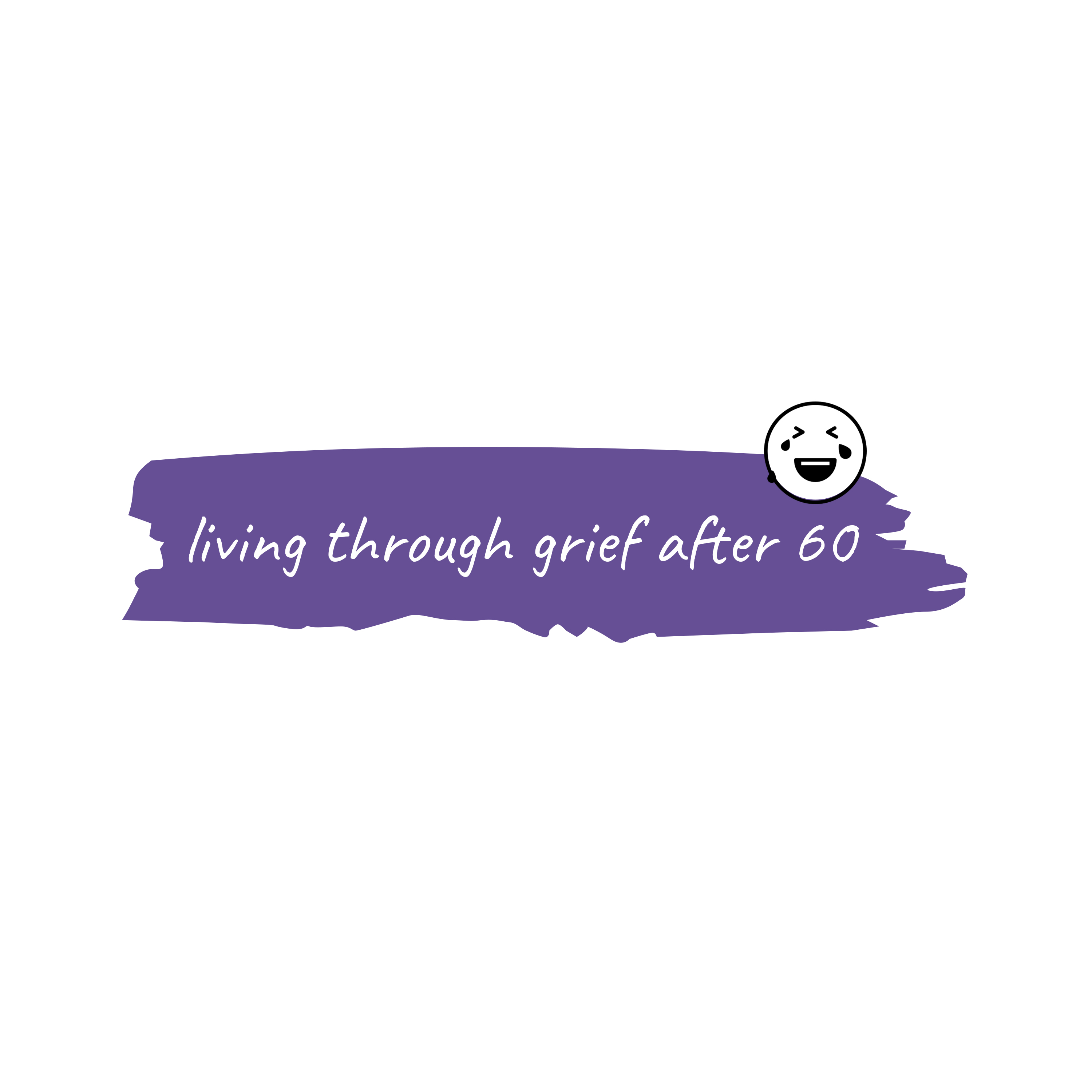This post may contain affiliate links, and I may earn compensation when you click on the links at no additional cost to you.
This is the first of a series of four articles on the Coronavirus and the unique grief it brings to everyone.
Impact of the Coronavirus
The world has been in the midst of a global pandemic that has sickened over a million people and killed thousands worldwide since January 2020. People regardless of age, gender, race, and socio-economic status have become ill. While the majority have survived, others sadly have passed away. The coronavirus has changed the lives of seniors in a way nothing else has in their lifetimes.
Seniors’ Anxiety About The Coronavirus
Seniors 60 and over, like everyone else, are anxious about the virus. There is no vaccine nor cure for the virus as of this writing. Seniors feel isolated from family and friends. People have passed away alone from the virus. Their loved ones were unable to say goodbye to their loved ones and tell the patient they were loved in person. The coronavirus is not something that just happens to “other people”. It can happen to anyone at any age.
Some people continue to believe the coronavirus is a hoax. Others believe the coronavirus only affects seniors and/or people with pre-existing conditions. Survivors of the coronavirus and/or relatives of those who died from the virus find it hard to watch images of people protesting that they have a “right” to be “free” from “safe at home” policies meant to protect people from getting the virus.
Statistics
Takespruce.com asked the following questions in 2020 about senior anxiety and the Coronavirus in 2020.
Changes in Anxiety Level
- Seniors’ (referred to baby boomers in the survey) anxiety levels changed from a 4 pre Covid-19 to a 6 post Covid-19 on a range of 1-10, with 10 being the highest anxiety.
Seniors’ anxiety levels have changed because of the Coronavirus. The media, health professionals and elected officials deliver mixed messages about the severity of Covid-19. Seniors suddenly had to maintain social distancing and begin wearing masks everywhere. They were unable to eat at restaurants, attend large social gatherings, and attend church.
Anxieties Seniors Feel Most About Pandemic
- Anxieties seniors feel most about the situation as of this writing include:
- 72% of respondents feel anxious about themselves, their families, and their friends remaining healthy,
- 16% feel anxious about their jobs and/or the economy;
- 8% don’t feel anxious about the current situation;
- 4% said they feel anxious about everyday life.
Seniors are more concerned about themselves, their families and their friends remaining healthy. They keep in touch with loved ones through phone, text, email, Zoom or Skype. Medical professionals strongly advise them that a limited amount of family members can see their loved one while in the hospital and/or in quarantine. Seniors and their families are happier than usual to see their loved ones when they leave the hospital. They are finally able to see and touch their loved one again.
The coronavirus has created a “new normal”. Relative and friends are now unable to attend graduations, weddings, and funerals in person due to health concerns. Since March 2020, these events have been virtual, delayed, or limited to a specific number of people. Wearing masks and social distancing are now required for everything from going to the grocery store and going to doctor’s appointments to attending church.
Most Common Anxiety Sources for Seniors
- The most common anxiety sources pre/post Covid-19 for all respondents regardless of age include:
- Work/job – 14.9% pre-pandemic, 18.6%;
- Family – 7.3% before the pandemic, 14.8%;
- Politics/News – 5% before, 14.6%;
- Physical Health – 7.1% before, 13.8% ;
- Money/Bills – 12.7% before, 12.9%;
- Mental Health – 14.9% before, 9.6%;
- Non-family Relationships – 11.6% before, 5.6%.
Takespruce.com found that the first four anxiety sources tell us that “the quarantine and the threat of illness have dramatically changed people’s priorities”. Respondents are less concerned about acquaintances, neighbors, and colleagues post pandemic than they were before.
Seniors have more anxiety about politics/news today than they were at the beginning of 2020. They are concerned about how the continuing uncertainty surrounding the pandemic “will be handled by elected officials”, takespruce.com found. Seniors are now more concerned about their physical health than their mental health.
If seniors have been furloughed from their jobs, they are very concerned about whether they are still able to maintain their physical health. They feel anxious about whether they will be able to continue to earn an income that will enable them to keep a roof over their heads and put food on the table.
Working From Home During the Pandemic
- Seniors’ responses to the statement “Working from Home During Covid-19” include:
- “No, I have to go into my places of work – 12.5%
- “No, I am not able to work right now – 54.2%
- Yes, I am working from home” – 33.3%.
At this time, a total of 45.8% of seniors are currently working either at home or at their place of employment. This figure is slightly less than the number of seniors who are unable to work at this time. Working from home is “a perk given to employees by forward-thinking companies”, takespruce.com found. However, not every employer who considers themselves “forward-thinking” offers this perk to all their employees. Jobs offering working from home includes management and office administration. Seniors who work in “essential” jobs, such as nurses, grocery store workers, and transit employees, generally do not have the option of working from home.
What does this say the 54.2% of respondents who said they were unable to work at this time? The businesses that employ seniors either temporarily closed or reduced their staff because they are “non-essential”. Seniors over 60 have either retired or are living on disability. These seniors may have chosen not to work prior to the pandemic.
Seniors may have also chosen not to work because they are more vulnerable to the effects of the coronavirus. They decided returning to work is not worth compromising their health or their life. Poll workers, the majority of whom are seniors 60 and over, have increasingly chosen not to work in primaries across the country due to the possibility of getting coronavirus from each other and voters.
Non-Death Loss
The pandemic represents a non-death grief that is unique for seniors. The questions and answers above are characteristic of a non-death loss, because it describes life before and after the coronavirus. Non-death loss is when people “grieve the loss of anything significant to their physical, psychological, spiritual, and interpersonal lives”, Litsa Williams wrote in “What’s Your Grief” in 2020. While some losses “feel minor and manageable…other losses feel devastating and life-altering”, Williams added.
Non-Grief Loss and the Coronavirus
Oxford Dictionary defines loss as, according to Williams:
- “The fact or process of losing someone or something;
- The state or feeling of grief when deprived of something or something of value;
- A person or thing that is badly missed when lost”.
All of these meanings of the word “loss” can describe what seniors have been through since the pandemic began. The possibility of losing a loved one to the virus has always been real, despite the person’s age and/or pre-existing condition.
Examples of Loss in the Pandemic
Loss is not just losing a loved one. It is also losing a person’s livelihood and opportunities to enjoy life. Seniors have missed the opportunity to watch their grandchildren walk across the stage at graduation ceremonies, attend church, go to lunch with loved ones, and get a haircut. High school and college graduates have been denied the rites of passage of graduation. Classes ended three months early for students. They have been completing studies online.
Until the pandemic, seniors have been able to get essentials such as toilet paper, bleach wipes, pain medication, and hand sanitizers. As the pandemic began, those things were in short supply. Those items are slowly but surely coming back.
Life Events Before and After the Pandemic
People are now defining their lives as “before and after” a loss, Williams found. Life events that can “evoke feelings of loss and grief” include the following, Williams shared:
- “Loss of employment or other role;
- Illness or injury;
- Shift or weakening of the family/support system;
- Trauma;
- Exposure to death or trauma;
- Loss of home;
- Serious illness;
- Substance abuse;
- Addiction;
- Life transition;
- Estrangement”.
Impact of Life After Losses
These events are related to the losses we have heard about since the pandemic started. Seniors fear going to grocery stores, eating out or returning to work because they are afraid they will come down with the virus. People who are not feeling well are nervous about going to the doctor because they are afraid they will be turned away. Seniors are concerned they will get coronavirus from another patient. Doctors and nurses are anxious that they will not have the equipment they need to properly care for coronavirus patients and remain safe.
To Be Continued…
The world is now six months into the pandemic as of this writing. The Coronavirus, for the foreseeable future, is here to stay.
Grieving a Death During A Pandemic continues the series on the coronavirus and its unique grief it brings to everyone, no matter your age.
Non-Death Loss and Grief (Series in Death, Dying, and Bereavement) is recommended to begin to understand the unique grief of non-death loss and how it relates to the coronavirus.

